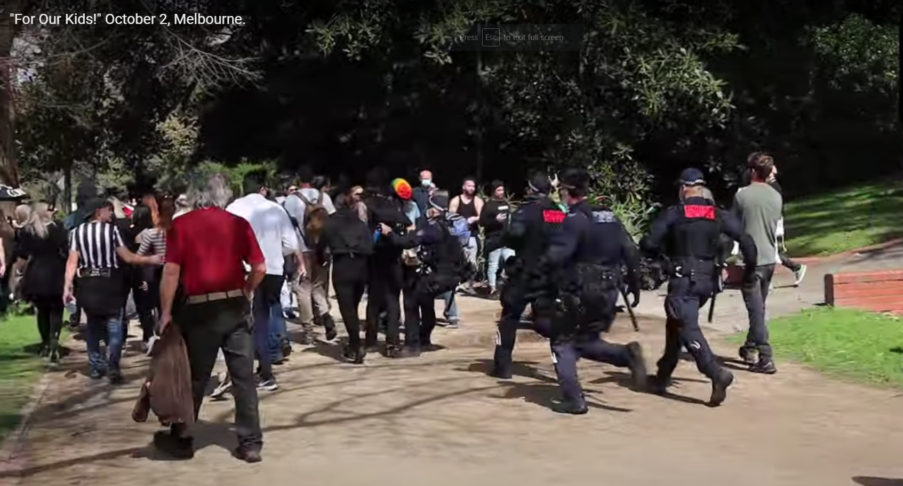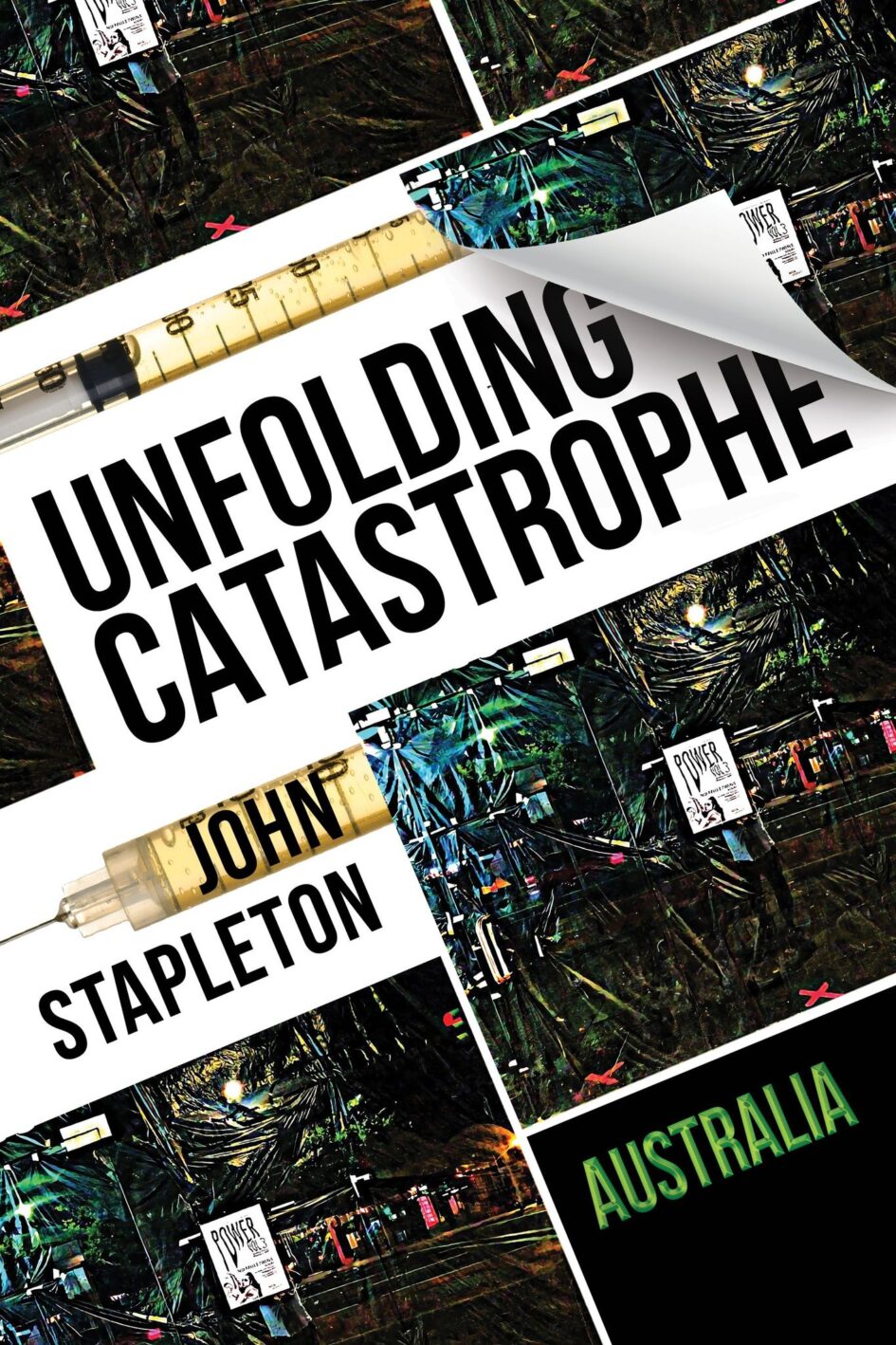Paula Matthewson, senior reporter with one of the nation’s few mainstream news outlets not behind a paywall, The New Daily, wrote way back in early 2020: “If there’s one clear message to emerge from Australia’s efforts to combat COVID-19 it’s that there’s no one clear message.
“Everywhere you look, from traditional news outlets to social media, there are widespread and vocal complaints that people are being made even more anxious by the mix of confusing and competing information that’s flooding across our screens and jamming the airwaves.
“This is obviously a problem — simple, clear and understandable messages are needed in times of emergency or crisis, particularly when lives could depend on us being able (and willing) to follow any instructions.”
Simon Longstaff, executive director of The Ethics Centre, a public intellectual in a country where such beasts were rare, said the past few days had seen Prime Minister Scott Morrison describe panic shoppers as engaging in behaviour that is “ridiculous” and “un-Australian”.
“He also had a crack at the people who flocked to Bondi Beach in the recent warm weather for not taking seriously the requirements for physical distancing.
“He is right on both counts. However, his message is blunted by the lack of authority attached to his office. This is part of a larger problem.
“The government’s meta-narrative is now one in which responsibility for the nation’s fate is tied to the behaviour of its citizens. The message from our political leaders is clear: you — all of you, the people — must take responsibility for your choices.
“Again, they are right. It’s just a terrible pity that the potency of the message is undermined by the hypocrisy of the messengers — a group that has refused to take responsibility for pretty much anything.”

One of the most bizarre and, if you were Australian, embarrassing early moments was the panic buying of toilet paper, directly induced by the government’s terrifying messaging.
News columnist Natalie Brown wrote: “This year has been defined by a slew of unbelievable moments — but there was one mass act of craziness that our nation will never live down.
“Packets of dried pasta were snatched up like tickets for a Justin Bieber concert. But it was the prospect of having to wipe their behinds on a stray Maggi noodle packet that truly bought panicked shoppers undone.”
As Brown noted, 2 March, 2020, was the day the country went mad. There would be banner headlines, restrictions on purchase, and plans to place police in supermarket aisles.
All over the humble toilet roll.
Supermarket chains Woolworths and Coles were forced to bring in buying limits after essential items — but in particular, toilet paper — began flying off shelves. Many stores were forced to have extra security to mind toilet paper supplies.
As Brown reported: “In the space of 24 hours and for weeks to come, shoppers wiped supermarket, pharmacy and convenience store shelves clean of the bathroom staple.
“Rolls were flogged for hundreds of dollars online; middle-aged bogans pulled knives and tasers on each other over dwindling supplies; and listeners called into radio stations to win packs of three-ply.
“Australia, revered for its conduct and acts of selflessness and community throughout the horror bushfire season, was reduced to an international laughing stock.
“In the days that followed, #toiletpapergate and #toiletpapercrisis were among our top trending topics on Twitter.
“There was no greater fear, as COVID-19 slowly infiltrated our country, than being stuck on the toilet and down to your last square of Sorbent.”

Following an all-out fight at a western Sydney supermarket between two women, aged 23 and 60, NSW Police Inspector Andrew New pleaded with shoppers not to “panic like this” when grabbing their groceries.
“There is no need for it. It isn’t the Thunderdome, it isn’t Mad Max. We don’t need to do that,” he said. “Violence of this nature will not be tolerated. There is no need for people to go out and panic-buy at supermarkets, paracetamol and canned food or toilet paper.”
Come March 18, Australia’s Prime Minister Scott Morrison joined the chorus of toilet paper suppliers, grocery store workers, police and the small portion of the community who hadn’t gone completely mad — scolding Kleenex fiends like a disappointed parent.
“Stop hoarding! I can’t be more blunt about it. Stop it! It’s not sensible, it’s not helpful and I’ve got to say, it’s been one of the most disappointing things I’ve seen in Australian behaviour in response to this crisis. That is not who we are as a people. It is not necessary. It is not something that people should be doing.
“What it does is it is distracting attention and efforts that need to be going into other measures to be focusing on how we maintain supply chains into these shopping centres. There is no reason for people to be hoarding supplies in fear of a lockdown or anything like this. As I’ve said, we’re putting in place scalable and sustainable measures.
“Stop doing it! It’s ridiculous. It’s un-Australian, and it must stop. And I would ask people to do the right thing by each other. We’re all in this together.”

Source: True Arrow. Eighteen months after the nightmare began and Australia changed for good.
Above everyone, looming through every moment, Prime Minister Scott Morrison was there playing regional pastor to the nation.
At a press conference in early March of 2020 he set the tone for much of what was to follow: “The first point I want to make is this, every Australian, all of our citizens — whether you’re the Prime minister, the Minister for Health, the Chief Medical Officer, mums, dads, school teachers, nurses, paramedics, childcare workers, boys and girls — we all have a role to play in containing and managing the spread of the coronavirus and ensuring that Australia is best prepared and best able to deal with this global virus. We all have a role to play. We all have responsibilities to play.
“To support each other, help each other, inform each other, assist each other, as we all get through what will be a difficult time in the months ahead.”

“We’re also standing up from today what is known as the national co-ordination mechanism that is being stood up through Home Affairs.
That will co-ordinate together with the states and territories, the whole-of-government responses.
“There are a broad range of other issues that have to be managed which are not directly health-related, and this co-ordination mechanism will mean that we’ll have the best possible interface with states and territories well ahead, frankly, of many of these issues which are not present at the moment, but if they become an issue that has to be managed into the future, we will have mechanisms in place to be able to address those issues. So Australia, as I’ve said many times, we’ve got ahead of this early.
“We intend to stay ahead of this. But I say to all Australians, you can help too. You can help by keeping calm and going about your business.
“So to all Australians, let’s get through this together. Let’s help each other. Let’s stay calm. Let’s continue to enjoy the most wonderful country in the world in which to live, and that doesn’t change under
these circumstances.”
So said the Prime Minister of Australia Scott Morrison in early 2020, to an ever accompanying flash of cameras.

At the same press conference Morrison announced the declaration of a human biosecurity emergency under the Biosecurity Emergency Act, gifting the government enormous powers.
As well, an indefinite ban on overseas travel was imposed.
Bang, just like that, the Australia of old was now a Hermit Kingdom.
And Scott Morrison was front and centre of the debacle. He never stopped talking the entire way through it: “Life is changing in Australia, as it is changing all around the world. Life is going to continue to change as we deal with the global coronavirus. This is a once-in-a-hundred-year-type event, we haven’t seen this sort of thing in Australia since the end of the First World War.
“We are going to keep Australia running. We are going to keep Australia functioning. It won’t look like it normally does but it is very important that we continue to put in place measures that are scalable and sustainable.“

Now if you were a jaded old news reporter, which was exactly what Old Alex was, to look back at these announcements was to see a veil of obscurantism and insincerity, contradictions and vanity which would become more and more obvious as the months passed.
Many Australian academics would struggle to understand what the Prime Minister intended to convey in these circumstances by his repeated use of the public service term “scalable and sustainable”.
But never mind; if the following twelve months of press conferences was anything to go by, clear messaging was not the purpose. Instead, it was all about centralising power, placing the administration and its woeful political class front and centre of everybody’s lives. All to get re-elected; all to stay in power.
And yes, it was a terrible deceit.

